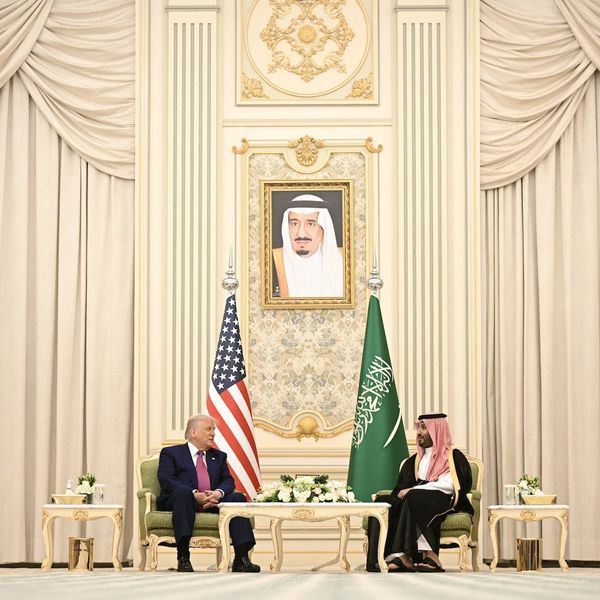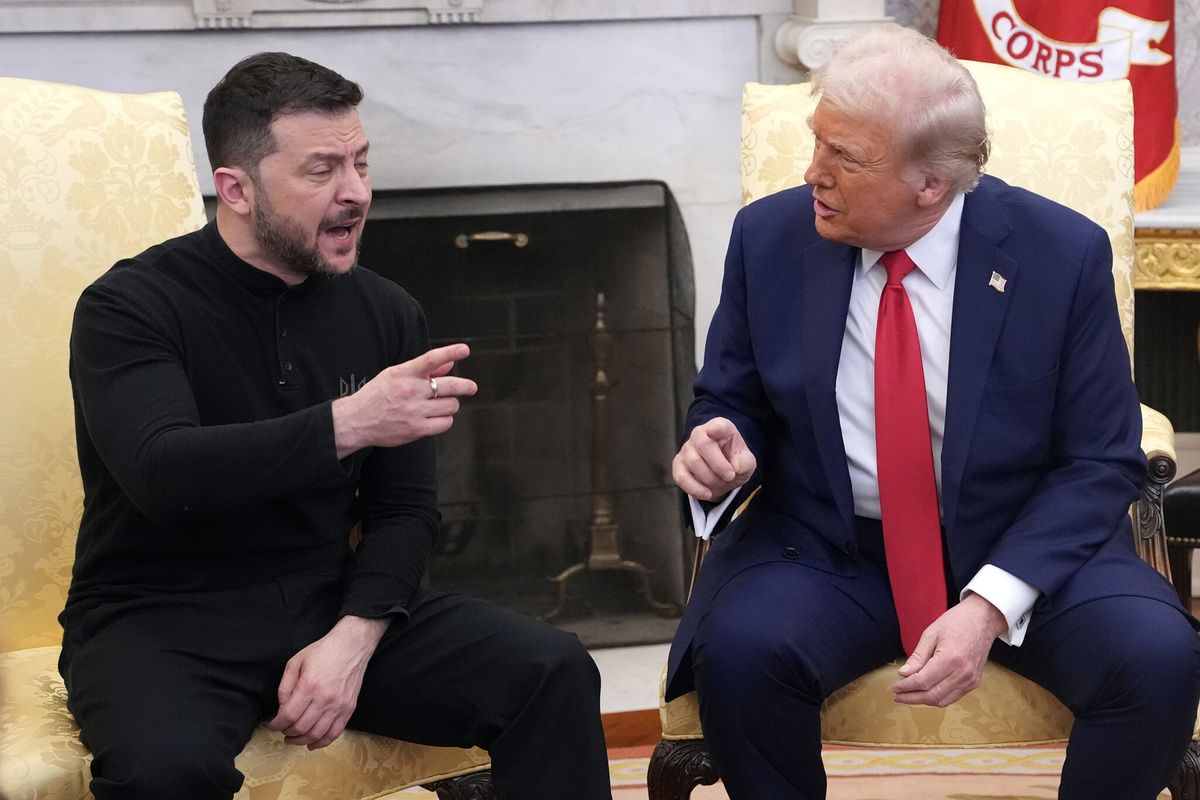President Donald Trump and his family’s myriad financial activities are unique for a White House occupant.
Prior to becoming Defense Secretary, James Mattis on January 5 signed an ethics agreement that stated, “I will not participate personally and substantially in any particular matter in which I know that I have a financial interest directly and predictably affected by the matter, or in which I know that a person whose interests are imputed to me has a financial interest directly and predictably affected by the matter.”
That statement was required by the federal criminal conflict of interest statute, which applies to all government employees and members of the armed forces but not to a president, the commander-in-chief.
Given the complexity of Trump’s holdings, he has decided to follow a unique path, but one that guarantees continued questions about whether he is increasing his and his family’s wealth while in the Oval Office.
President Trump, through a trust set up to benefit him alone, continues to receive income directly and indirectly from his hundreds of individual private companies and partnerships, despite turning over control of the so-called Trump organization to his two sons, Donald Jr. and Eric.
The president, who takes pride in his businesses, is staying in touch with the Trump organization’s profitability, according to an interview Forbes’ writer Dan Alexander had last month with Eric.
In an article published last Thursday, Eric said he was updating his father “on the bottom line, profitability reports, and stuff like that, but you know, that’s about it.”
“How often will those reports be, every quarter?” he was asked.
“Depending, yeah, depending,” was the answer without saying what it was dependent upon. “My father and I are very close,” Eric said, “I talk to him a lot. We’re pretty inseparable.”
The public should understand that the profits, losses, and other cash distributions from each of the Trump companies are allocated to him personally – or to his trust – and to other members of the various limited liability companies or partnerships in accordance with their respective percentage interests in the entity.
In a decision that is already being questioned on Capitol Hill, a General Services Administration (GSA) contracting officer, Kevin M. Terry, has determined that a new arrangement for handling Trump’s profits from his majority share ownership in Trump’s Washington, D.C. hotel does not violate the GSA lease for the property, which says no elected U.S. government official may benefit from the lease.
Compliance was determined by Mr. Terry when Trump’s attorneys set up a capital holding account for whatever profits from the hotel operations are due for President Trump. If needed, those funds would be used to enhance the operations of the hotel. In short, Trump, at the end of term, would receive whatever funds were in the new account or benefit from his share of ownership in the hotel, which could be worth more based on the hotel’s increased value.
Trump has not made public his past personal tax returns, and aides have said he will not do so while in office. Therefore, it appears the public will not know the size of his income, or his trust’s income, while he is president and whether his income has increased thanks to his being in the Oval Office.
Needless to say, every recent president has disclosed his tax returns each year that he has been in office.
His daughter, Ivanka Trump, now an unpaid White House advisor to the president, still owns her clothing, jewelry, and accessories company through a revocable trust. She has turned over its daily management to her firm’s president. Nonetheless, she will retain veto power over any new deals or licensing arrangements, according to her attorney.
She has a West Wing White House office and is getting a security clearance and a government-issued phone, but because she is not taking an oath of office, Ivanka apparently will not be required to file a financial disclosure statement.
According to an article in Politico, her attorney has said Ivanka will voluntarily follow ethics laws, and she has released a document showing she has disposed of a limited number of assets.
Ivanka’s exact duties have not been spelled out, although her focus apparently is on issues that affect professional women and young mothers—the target, consumer audience of her company’s website. She has repeatedly appeared at White House other events involving professional women and corporate leaders.
Jared Kushner, Ivanka’s husband and Trump’s son-in-law, is senior advisor to the president with wide-ranging duties involving both domestic and foreign policy issues.
It was announced in January that Kushner would be covered by conflict rules applying to senior federal officeholders, which includes filing a financial disclosure form. He joined the administration on January 21, yet to this date, the so-called Form 278 financial disclosure statement has yet to be made public by the Office of Government Ethics.
Kushner’s attorney has said he will divest all common stocks and over 35 other investments, including those located overseas. Some assets have been sold to his brother, Josh, and to third parties or to a trust, where his mother is the trustee, but he is not a beneficiary.
Potential financial conflicts for Trump and his family abound.
One involves the EB-5 immigrant visa investment program under which foreign individuals are eligible to apply for lawful temporary and then permanent residence in the United States if they make the necessary investment. Up to now, the investment level was set at $500,000 when the project was in low employment areas, to $1 million where the area already had higher employment. The investment must be for a commercial enterprise in the United States and create or, in certain circumstances, preserve 10 permanent full-time jobs for qualified U.S. workers.
Kushner, as head of Kushner Companies, his family real estate development business, used the EB-5 program in 2013 to raise $50 million, mainly from Chinese investors, that helped finance Trump Bay Street, a 50-story luxury rental apartment building in Jersey City, N.J., which the Trump organization will manage.
Jared Kushner last year worked on a deal with the Anbang Insurance Group – a $300 billion Chinese enterprise that includes family members of former Chinese leaders. The negotiations involved the building at 666 Fifth Avenue, N.Y., headquarters for the Kushner Companies and their most valuable property. The deal, which has not been finalized, includes raising more than $800 million from EB-5 investors.
Jared Kushner has sold his interest in 666 Fifth Avenue to members of his family and has recused himself from any EB-5 issues, including an examination of the EB-5 program.
Meanwhile, there is a rulemaking underway since January 13 for the EB-5 visa program, which would require raising the required investment from $500,000 to $1.35 million in low employment areas and from $1 million to $1.8 million where employment is higher.
In addition, legislative authorization for the EB-5 program itself will run out on April 28, unless Congress votes to extend it.
Whatever action the Trump administration takes on the EB-5 extension and rulemaking could financially affect members of the president’s extended family.
Meanwhile, Jared Kushner’s White House foreign policy activities continue to include dealing with China and Israel, with the latter being a country where Kushner Companies, according to its website, has partnerships with two major Israeli banks.
Although Trump has stated that his sons are not to undertake new investments abroad, because they could imply a conflict of interest involving foreign policy decisions, he did not rule out foreign interests investing in the Trump Organization’s domestic activities, including its new chain of Scion hotels. Past Russian financial participation in Trump projects in the U.S. already has raised questions about whether they have had an impact on the president’s statements calling for a new relationship with Moscow.
Bloomberg News reported last month that the Trump Organization was in discussions with potential investors from Turkey, Qatar, and Kazakhstan for a Scion hotel in Dallas planned for a $50 million downtown project.
Eric Trump told Forbes, “We’re doing great in all of our assets.”
Take Mar-a-Lago as one example. The membership fee since Trump was elected has been raised to $200,000, twice what it was before November 8. In addition, members pay $14,000 in yearly dues and have an annual food and beverage spending minimum.
The resort’s profit in the fiscal year ending July 2016 was $9 million, based on documents filed with a Palm Beach County lawsuit, as reported by the Palm Beach Post. Trump, himself, reported Mar-a-Lago’s income that year was $29.8 million, almost twice what it was in fiscal 2015, before his presidential campaign had begun.
Trump’s hosting at Mar-a-Lago of Japanese Prime Minister Shinzo Abe in February and Chinese President Xi Jinping next week guaranteed free international publicity and inevitable financial gain for the resort. If those meetings took place in Washington or Camp David, for example, Trump would not personally benefit financially.
Unlike any other president, Trump’s use of Mar-a-Lago as a “winter White House,” as well as Trump Tower as an alternative residence, also means U.S. government taxpayer funds are being funneled into Trump enterprises with any profits from those entities providing income to the president.
Trump also can benefit financially if his planned tax proposals were enacted into law.
For example, he wants to do away with the alternative minimum tax provision, which limits wealthy taxpayers from using various large deductions and credits to reduce their personal income taxes. In his 2005 federal tax return, Trump reported a $38 million tax on his personal income of $150 million. Trump’s tax would have been just $7 million without the alternative minimum tax provision, which came into play because he took a $103 million income deduction based on prior year losses.
His tax plan, as originally presented, would also maintain loopholes that permit him to use a variety of deductions to lower the size of his income, plus reducing corporate tax levels would also lower his own tax liability.
Forget for a moment how badly Trump’s first three months in office have been for the country. Remember how profitable they may have been for Trump and his family, and consider how they will be seen by those in government and the armed forces who are following the conflict of interest rules.















